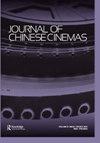Eulogistic comedy as domestic soft power: Biopolitical self-fashioning in It's My Day Off (1959)
IF 0.4
3区 艺术学
0 FILM, RADIO, TELEVISION
引用次数: 0
Abstract
ABSTRACT Soft power as a concept measures the ability of a nation in obtaining positive outcomes overseas through cultural means, but its core ideas of attraction and credibility are productive in analyzing eulogistic comedy's contradictory functions of propagating official policy and refashioning self-interests in socialist China. It's My Day Off (1959) satisfies official expectations of constructing positive models for viewers to emulate, but it also reveals the technology of self-fashioning as a process under surveillance by the Party and the patriarch. A series of comic situations of missed opportunities foreground the logic of instant public recognitions and deferred libidinal gratification that overdetermines socialist self-fashioning as an endless psychic-somatic mechanism of self-othering. Surprisingly, it is by demonstrating the attraction of altruism that the film may have gained its unintended critical edge in disclosing the panoptic biopolitical condition in a socialist utopia.赞颂喜剧作为国内软实力:《这是我的休息日》(1959)中的生命政治自我塑造
摘要软实力作为一个概念,衡量一个国家通过文化手段在海外取得积极成果的能力,但其吸引力和可信度的核心思想在分析社会主义中国歌颂喜剧在宣传官方政策和重塑自身利益方面的矛盾功能时是富有成效的。《我的休息日》(1959年)满足了官方的期望,即为观众树立积极的榜样,但它也揭示了在党和家长的监督下自我塑造的技术。一系列错失机会的喜剧场景预示着即时公众认可和延迟性欲满足的逻辑,这将社会主义自我塑造过度确定为一种无休止的自我他者的心理-身体机制。令人惊讶的是,正是通过展示利他主义的吸引力,这部电影在揭示社会主义乌托邦中的全景生物政治状况方面获得了意想不到的批评优势。
本文章由计算机程序翻译,如有差异,请以英文原文为准。
求助全文
约1分钟内获得全文
求助全文

 求助内容:
求助内容: 应助结果提醒方式:
应助结果提醒方式:


